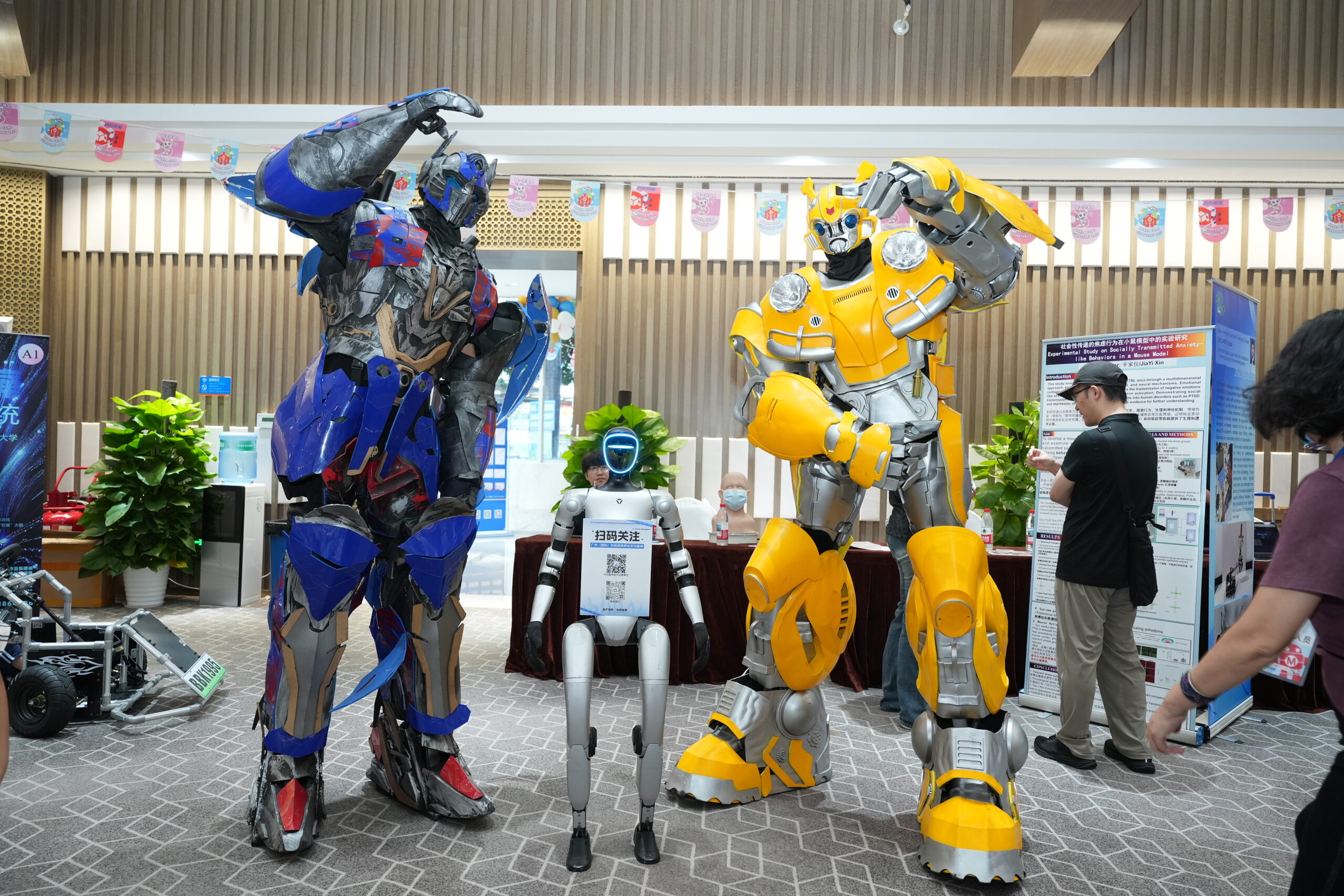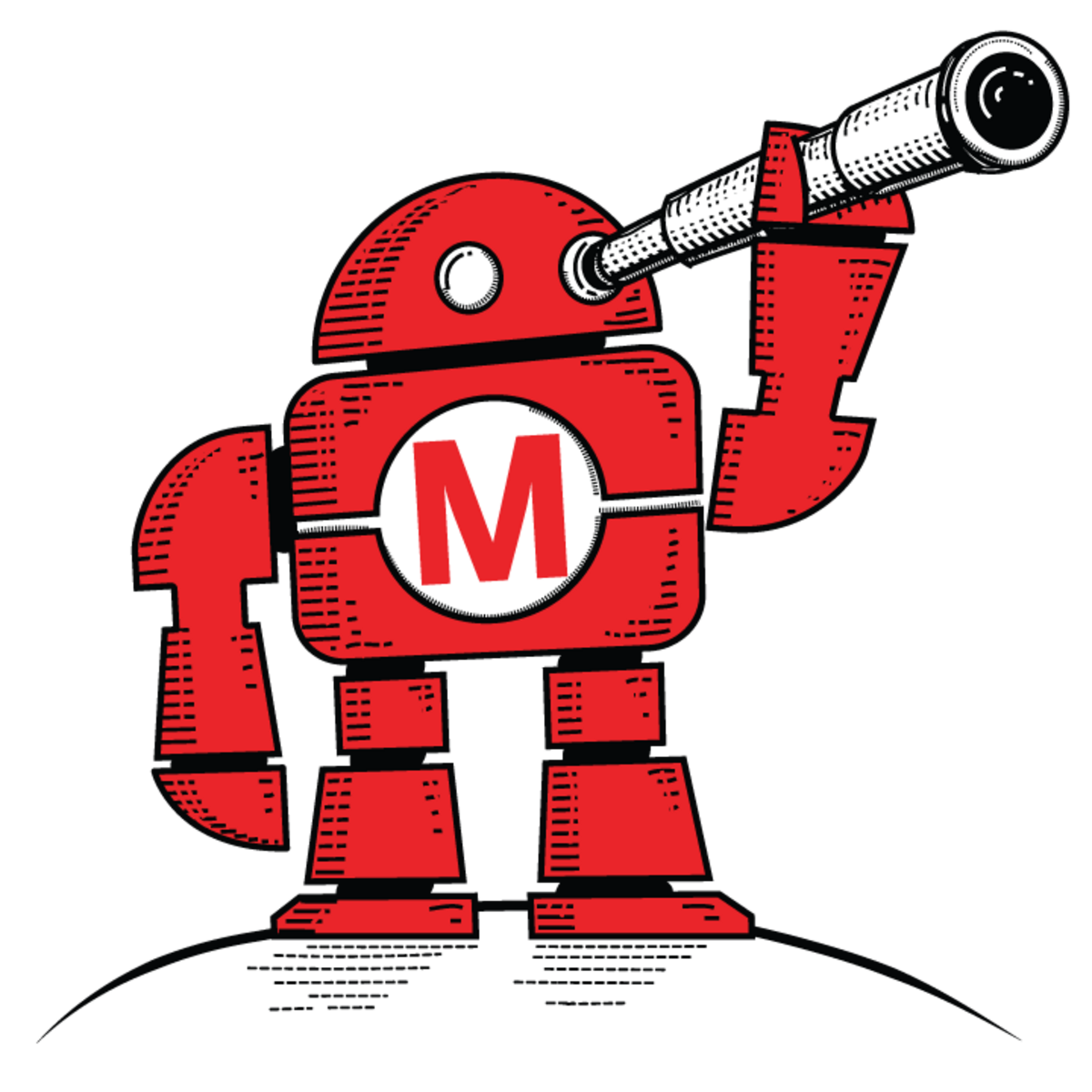
Maker Faire Guangzhou (photo by David Groom)
Table of Contents
Palmer Luckey’s world
It’s Palmer Luckey’s world that we are living in. The 33-year old who created the Oculus Rift headset while in high school is now making VR headsets and battle equipment for warfighters in real life as the founder of Anduril, a new entrant in the defense industry. Palmer sold Oculus Rift to Facebook for $2B and worked there until he was criticized for giving money to a pro-Trump group. (Luckey says his support for Trump started when he was 15.) Now at the center of national defense and tech innovation, Anduril is worth $30B.
Luckey was recently on the Joe Rogan Experience podcast for a three-hour conversation. No doubt Palmer has his admirers and detractors but I have to say that he’s a fascinating person, a product of his time, a self-taught engineer, and someone who while still young has evolved his own political philosophy and a keen sense for business. Palmer, himself a billionaire, says that he’s working in the defense industry not because he needs to, but because these are the kind of big problems he wants to solve.
In the beginning, Rogan was talking about having his own float tank. Luckey says: “I know someone who is building a rig with a waterproof keyboard, waterproof mouse, and a VR headset so that they can have a float computing rig. And they want to program while they’re floating in space. He hasn’t gotten all the way there yet. The hardest part has actually been the mouse.” His friend wants to code while submersed in the float tank.
Rogan asked Luckey if he’s ever been in a float tank. Luckey replied: “I've done a lot of reading on it. I’m super interested in the science of it, but I’ve never actually managed to get into a float tank, which is really embarrassing.” Rogan says: “I mean, you’d think that a billionaire would have the resources to get into a bucket of saltwater.”
Luckey says that he’s always been interested in creating environments that allow a person to be inside a video game and “completely forget about the real world.”
“I started building virtual-reality headset prototypes when I was 14 or 15. And then I built the first prototype of what I’d called the Oculus Rift at 16. And then I formally turned it into a company when I was 18, launched the product when I was 19, and then sold the company a few years later to Facebook for a few billion dollars.”
Luckey looks like a surfer dude wearing Hawaiian shirts and flip-flops; he doesn’t look like the usual conservative. “The strongest argument for Trump is that anybody would have been better than what the establishment was pushing,” he told Rogan, who agreed.
“So a lot of people think I’m like this hard political guy. I was a VR guy,” he said. “I was a computer kid. Politics was something I cared about, but like I was reasonable. I had not yet been radicalized. It was after they fired me for giving $9,000 to Trump that I got radicalized.”
Rogan asks him to reflect on his childhood. “I remember being like seven years old and thinking about this stuff. I grew up watching Power Rangers when I was a really little kid. The character I most identified was like the techno wizard of the group, Billy, who was building like flying cars and upgrading their robot suits. And I don’t know, it’s really weird when you end up as an adult just doing exactly what you were fascinated with when you were a kid. Because what you’re fascinated with when you’re a kid is really just a function of what’s put in front of you, right? Like what if I would have had different things put in front of me?…
“It’s just finding whatever the path is that you think is interesting and just going in that direction. Your direction was kind of established by your interests when you were younger,” he added. Rogan commented: “So it probably seems surreal just in the fact that you’ve gone so far with it to the point where you’re actually making weapons to defend other countries.”
Luckey describes what could have happened instead: “My progression only happens if it’s successful continuously. A world where I don’t basically figure out how to build good virtual-reality technology is one where Oculus doesn’t exist. If Oculus doesn’t exist, I don’t get bought by Facebook. I don’t go to Silicon Valley. I don’t become one of the leading tech figures in that industry up there.”
As I said, Luckey is fascinating, and he’s also lucky to be where he is: on top of the real world.
Maker Faires around the world
On Makezine.com, we have reports from Maker Faires around the world — Rome, Guangzhou, Brno, and Seoul, as well as Tokyo.
Make:’s Director of Marketing and Content, Gillian Mutti, and Make: Editor-in-Chief Keith Hammond were at Maker Faire Rome, which is entirely too large to summarize. So many creative projects to see and so many new makers to meet.
Make: Editor David Groom was at Maker Faire Guangzhou last weekend. He said it was an “astounding success” for the first-time event. We heard this week from the organizer: “Maker Faire Guangzhou was highly praised by makers, students, parents, and friends from all over. Their enthusiasm and positive feedback have been overwhelming, and they are already looking forward to the next Maker Faire Guangzhou.”
Check out the aftermovie from Maker Faire Brno in the Czech Republic:
We appreciated the opportunity to publish Evan Brand’s report on his visits to Maker Faire Seoul as well as Maker Faire Tokyo:
Maker photos wanted
Please send us a photo of a project that you’re working on. Give us a brief explanation of the project as well as where you do your work. We’ll publish it in a future edition of this newsletter. Send the photo to [email protected].
Make: Things is a weekly newsletter for the Maker community from Make:. This newsletter lives on the web at makethings.make.co





